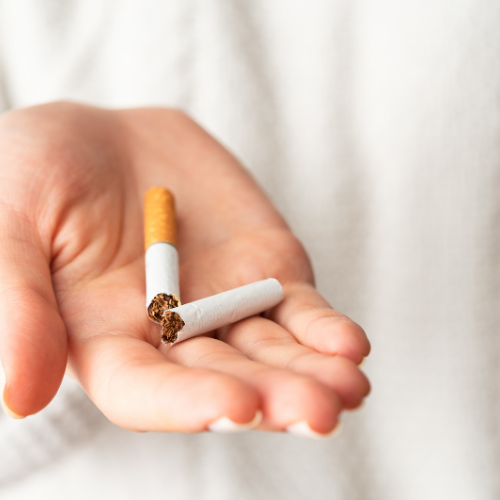Download the full version of this Live Well, Work Well Newsletter
Making Every Bite Count
The foods and beverages you consume have a significant impact on your health. In fact, 60% of adults have one or more diet-related chronic diseases.
The newly released Dietary Guidelines for Americans (2020-2025) offers science-based nutrition advice to develop healthy eating habits and reduce chronic disease risk. For the first time, this edition provides recommendations by life stage, from birth through older adulthood.
The latest guidance provides four overarching guidelines that encourage healthy eating patterns and recognize that individuals will need to make shifts in their food and beverage choices to achieve a healthy pattern. Make every bite count and consider the following:
- Follow a healthy dietary pattern at every life stage. Dietary needs and recommendations vary based on your age, sex and stage of life. Review the guidelines to ensure that you and your loved ones—whether they’re infants, children, teens, adults or elderly—are following a healthy diet.
- Customize your foods and beverages to reflect personal preferences, cultural traditions and budgets. A healthy dietary pattern can benefit all people regardless of age, race, ethnicity or current health status.
- Focus on meeting food group needs with nutrient-dense foods and beverages, while staying within calorie limits. Nutrient-dense foods are rich in vitamins and minerals, without too much added sugars, saturated fats and sodium.
- Limit foods and beverages high in added sugars, saturated fats and sodium. Be mindful of the nutritional facts of the foods and beverages you consume—including alcohol. Men should limit alcohol to two drinks a day and women should consume no more than one drink per day.
Everyone can benefit from a healthy eating pattern, so start simple with modest changes each day. For healthy recipes or to learn more about the current guidelines, visit MyPlate.gov.
Adults need seven to nine hours of quality sleep each night. In honor of World Sleep Day on March 19, consider the following tips to prioritize your sleep:
- Avoid drinking caffeine within six hours of bedtime.
- Stop watching television and using your phone and other electronic devices for at least 30 minutes before bedtime.
- Create a relaxing bedtime routine to help your brain unwind and recognize that it’s time to sleep.
- Keep your bedroom cool, dark and quiet.
If you’re regularly feeling tired upon waking up, or throughout the day, you may be experiencing some underlying issues. Talk to your doctor about any concerns.
Properly Cleaning Your Earbuds
Listen up! Earbud use can lead to health issues such as excessive earwax, ear pain, ringing in the ears or infections. Dirt, debris and sweat can build up over time, so it’s important to clean earbuds after each use. Cleaning can also maintain sound quality and extend the life of your earbuds.
First, disconnect your earbuds. Then consider the following cleaning options:
- Soft cloth—If you have single-piece earbuds, slightly dampen a cloth with fresh water and wipe clean.
- Alcohol wipes—To clean and disinfect earbuds, use an alcohol wipe.
- Soap and water—A simple solution of antibacterial soap and warm water paired with a soft cloth work well. If you need something more potent, use rubbing alcohol.
- Small brush—A clean toothbrush or cotton swab can clean mesh grilles and other small grooves.
After cleaning your earbuds, allow them to dry completely before placing in a storage bag or case. If you’re experiencing ear pain, talk to your doctor.

Class-action Lawsuits Target Health Plan Tobacco Surcharges
Class-action lawsuits allege that employer health plan tobacco surcharges violate federal compliance regulations.

Employee Spotlight: Alexis Leysock
Please join us in welcoming Alexis Leysock to the Seubert Team! Alexis joins Seubert’s Employee

50 Years of Minimizing Risk and Maximizing Potential
Seubert & Associates celebrates 50 years of helping businesses nationwide minimize risk and maximize potential

